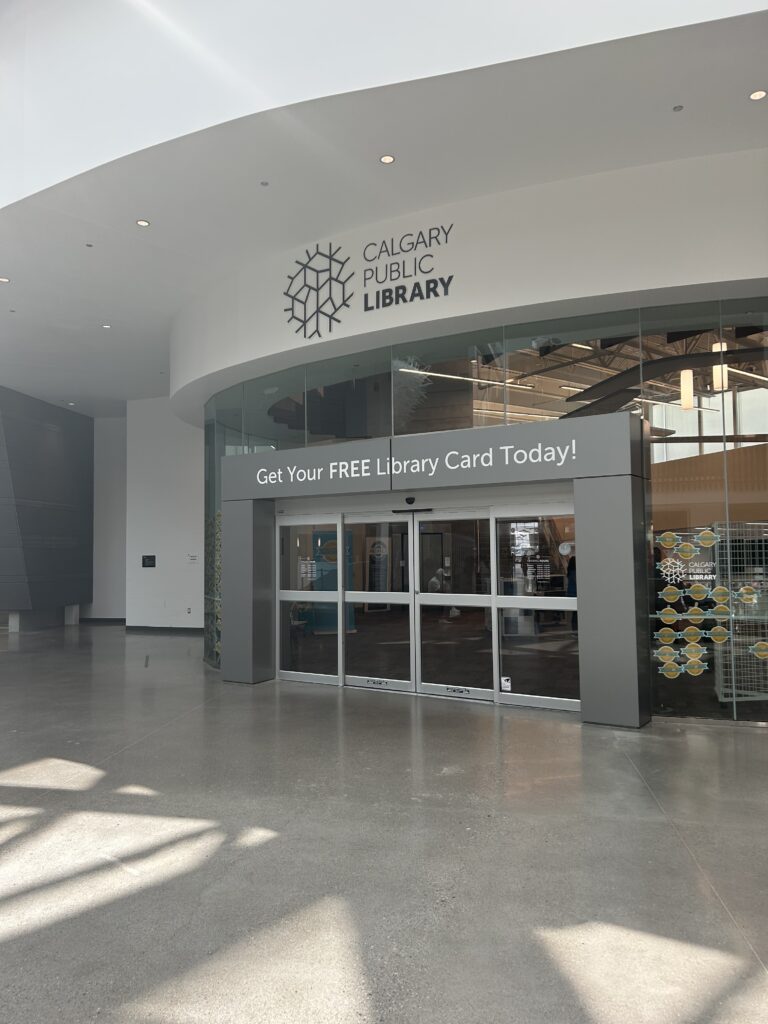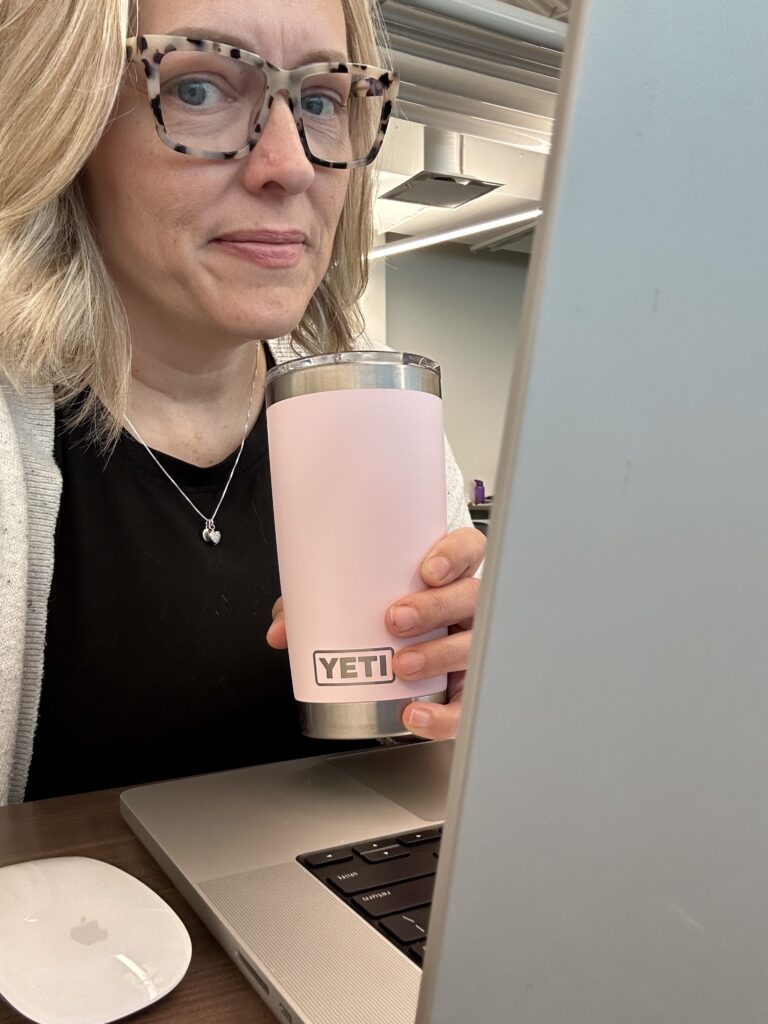I have been an avid reader my entire life. I grew up in a very small town in Northern Saskatchewan, and we did have a very small ‘cottage’ like library. As a kid, and until I moved away, I read every book in the teen/young adult section. Twice.
You can imagine my enthusiasm as I moved to bigger and bigger places. I am a member of every library in every city I have ever lived in since. Library’s have often been my safe space, somewhere I could go and read or work. Be it reading, creating, studying….
Fast forward to today. I am a coach/creator and whether it’s a course, or an ebook, or specific 1-on-1 work with clients, I am often creating something. And due to circumstance, lately I’ve been going to the library to work. It’s a very engaging space with lots of people and energy. And I am reminded of how much I love the library.
So much so, that I decided to turn this blog into an assignment. Its an ironic one, I am going to use technology to help me explain the very beginning of our thirst for knowledge as human beings.
I gave myself 10 minutes using ChatGPT (paid version) to put together a short, conversational history of libraries. I had to ask specific questions, and this is just the framework, I never cut and paste directly. Like, never never. This is how I use ChatGPT, as a guide and reference point. This article or blog is over 500 words, so google will like it, it can go nicely on your website or even be made into a Linkedin long post.
Here we go…if you have ever wondered where libraries come from, ChatGPT and myself will explain.


The Latin word “liber” means “book.” This is the root of various words related to books and libraries in many languages, including “library” in English.
The roots of libraries trace back to antiquity, with the Ebla Royal Palace Library of ancient Ebla—an enclave of what is now modern Syria—dating back to approximately 2500 BCE. This repository housed clay tablets that encapsulated administrative intricacies alongside literary treasures, establishing the foundational concept of knowledge preservation. The subsequent eras saw even Roman villas housing libraries, a testament to the prevailing reverence for intellectual nourishment.
Transitioning to the Islamic Golden Age spanning the 8th to 13th centuries, the emergence of “houses of wisdom” such as the famed Bayt al-Hikmah in Baghdad marked a critical juncture. These centers undertook the Herculean task of translating classical Greek and Roman texts into Arabic, thus curating a treasury of timeless wisdom.
Fast-forwarding to the 19th century, an epoch defined by industrialization and urban expansion, public libraries materialized across continents. This proliferation resonated with the intrinsic belief in universal literacy and equitable education. Libraries, resilient and adaptive, have navigated evolving epochs and technological advancements, unwavering in their role as sanctuaries fostering personal enrichment, scholarly inquiry, and cultural enlightenment.
As you can see, the history of libraries is a testament to humanity’s desire to preserve knowledge, foster education, and share ideas across generations. History proves that.
There, written 50% with ChatGPT and 50% with Donita’s brain. ChatGPT has become a co-worker of mine.
I named my co-worker Oscar. For 2 reasons, Oscar the grouch in Sesame Street – and Oscar Martinez from The Office. If either of those shows are familiar to you, I don’t need to explain any more. (Grouchy and judgemental).
All I know is that Oscar my co-worker contributes to a lot of my creative work daily. He has enhanced my life and given me hours back. Whether you are using ChatGPT for the first time, or re-engaging with a local library – you are getting into a creative space.
Enjoy that footprint that someone made thousands of years ago.

